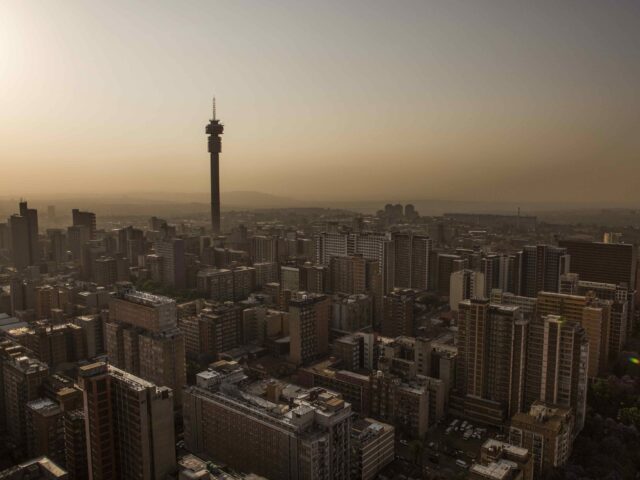South Africa is exceeding its goal for cutting greenhouse gas emissions — thanks to regular blackouts that have become a daily feature of life in the country and have become a serious obstacle to economic growth.
As Breitbart News reported recently:
“Load shedding,” the practice of controlled blackouts by the state-owned power company, Eskom, continues to plague South Africa …
Load shedding affects millions of residents and businesses. Large companies typically install diesel-powered generators; some wealthy families install batteries or solar panels to make up for electricity outages. But for millions of people — especially the poor — the impact is tremendous. And when power is restored, electricity surges can also damage consumer electronics, destroying additional household wealth and productivity.
Two decades ago, Eskom had excess capacity and generated the cheapest electricity in the world. But the company was undermined over time by aggressive affirmative action policies that forced the departure of skilled engineers, and by “black economic empowerment” procurement policies that enriched a small group of corrupt, politically-connected entrepreneurs without delivering value to the company or to its consumers.
There is little hope for restoring Eskom’s capacity. The utility relies heavily on coal, which is abundant but has whose supply has also been affected by corruption that has accelerated the deterioration of the country’s rail networks, which are necessary to transport coal from the mine to the plant. Cape Town has launched an effort to develop its own power sources, focusing on abundant solar and wind energy, but completion is years away.
The silver lining, if there is one, is that South Africa has exceeded its goals for emissions cuts. Bloomberg News reports:
Output of the climate-warming gases from the world’s 14th-biggest emitter is already falling even though its Nationally Determined Contribution, a target adopted by the cabinet in 2021, only forecast a decline from 2025.
Regular breakdowns of the coal-fired power plants that supply more than 80% of South Africa’s electricity mean that less carbon dioxide is being pumped into the atmosphere and daily rotational cuts of more than 10 hours a day are further limiting emissions from factories.
“It’s unintentional,” Crispian Olver, the executive director of South Africa’s Presidential Climate Commission, said in an interview in Johannesburg on Monday. “We reckon we are well within the range” of meeting the 2030 target, he said.
South Africa has abundant coal, and could theoretically build more coal power plants. But two recently-built plants have suffered severe engineering problems, and crime syndicates have begun to control the supply of coal.
South Africa is also signatory to the Paris Climate Accords, limiting the extent to which it can expand its coal power capacity. International investors have little desire to fund coal plants. Renewable energy projects are coming online, but South Africa’s Daily Maverick website reported Tuesday that they are not properly linked to the country’s dysfunctional electricity grid.
Expanding nuclear power is an option — one that South Africa’s government is now openly considering — but is likely to meet many regulatory and technical challenges.
Joel B. Pollak is Senior Editor-at-Large at Breitbart News and the host of Breitbart News Sunday on Sirius XM Patriot on Sunday evenings from 7 p.m. to 10 p.m. ET (4 p.m. to 7 p.m. PT). He is the author of the new biography, Rhoda: ‘Comrade Kadalie, You Are Out of Order’. He is also the author of the recent e-book, Neither Free nor Fair: The 2020 U.S. Presidential Election. He is a winner of the 2018 Robert Novak Journalism Alumni Fellowship. Follow him on Twitter at @joelpollak.

COMMENTS
Please let us know if you're having issues with commenting.